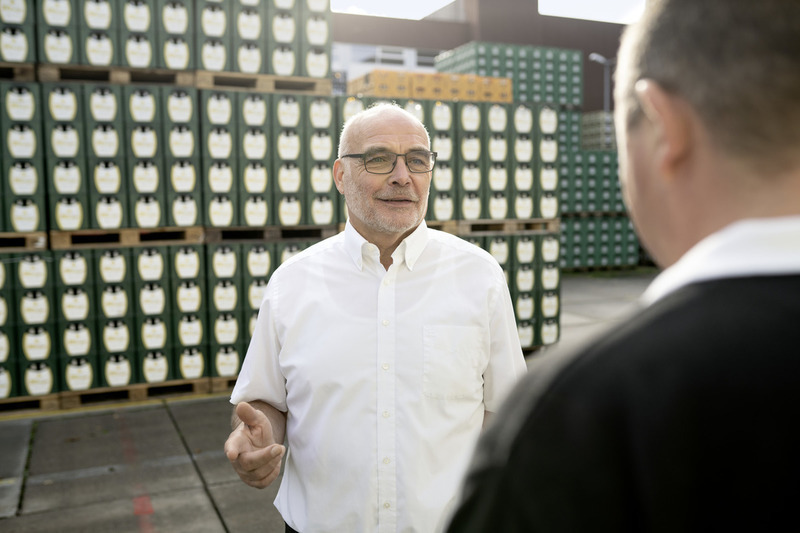Reference Bitburger Group
A conversation with Thomas Lauer, Head of Technology / Production / Environment in the Bitburger Group, about cleaning technology and family-owned companies.

Bitburger is a family-owned company, just like Kärcher. What do you think characterises family-owned companies?
Family-owned companies think in terms of generations and not in terms of quarterly reports, which means they have a different corporate culture. Sustainability is not a modern buzzword, for example, and the focus isn’t only on climate and environmental protection.
The company is currently under the management of the seventh generation of the family. This means they have an entirely different connection to the company than shareholders in a public limited company.
What role does cleaning technology play in the drinks industry? Where are the greatest challenges?
Consumers are often unaware of how much time and work we as a brewery put into cleanliness and hygiene. At the weekend, for example, we clean the bottling plant in two shifts; the cleaning schedule is part of our production planning. This makes cleaning technology hugely important to us, as it ultimately determines whether or not our product reaches the consumer.
What is particularly important to you when selecting cleaning technology solutions?
First and foremost, we need reliable, effective and environmentally friendly solutions. The cost-benefit effect plays a role too, of course, as we have to work economically. Let’s take the example of the bottle cleaning machine for returnable bottles. We work with our cleaning technology suppliers to define treatment times, temperatures and other factors to ensure the cleaning process
runs as effectively as possible and achieves the desired result. As far as the chemicals used are concerned, we work with manufacturers who develop products that are tailored to our specific requirements – we need, for example, lye with additives with a good cleaning power but minimal foam formation.
As well as these special applications, we also have to think about the day-to-day cleaning of the production environment. We look for solutions that make our employees’ work as
convenient as possible.
You also use cleaning technology from Kärcher. Why did you choose those particular solutions?
We have been customers of Kärcher for a long time, as we appreciate the quality and having a service partner on site. The products are installed throughout our entire production facility, something I only really became aware of when I gave Kärcher employees a guided tour of the brewery. This meeting came about in quite a special way: at an event for family-owned companies, the two families were introduced and decided to bring together key employees from each company.
I must confess that this initially felt like something of an imposition. But the meeting was fantastic and it was clear from the start that we were on the same wavelength. Since then, we have strengthened our cooperation even further.
Where exactly do you use solutions from Kärcher?
We have stations with Kärcher equipment on every bottling line, which we use for dayto-day cleaning. This includes high-pressure units, hose stations and further accessories. We use electrically heated high-pressure cleaners, for example, to remove logistics labels that supermarkets apply to our beer crates. These are affixed so firmly that they have to be removed manually. The automatic process is simply not sufficient. We use industrial vacuums to remove the labels following the rinsing process.
If you could ask for anything, which innovation( s) would you like to see next from Kärcher?
An automatic Kärcher for my home that does all the cleaning for me. Joking aside, automatic systems are of particular interest for the brewery. I believe Kärcher is perfectly placed to develop these types of solutions. Automatic solutions would also be helpful for cleaning beneath and between the machines, in places that are difficult to reach. We would embrace anything that saves our employees time cleaning.



